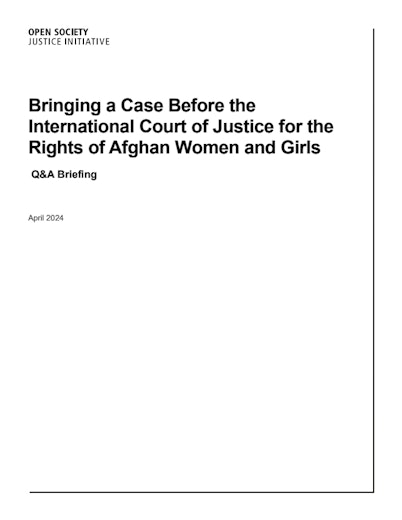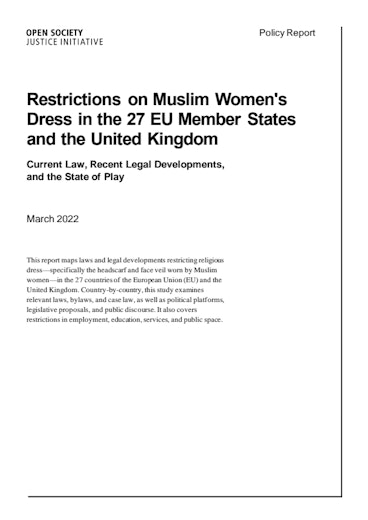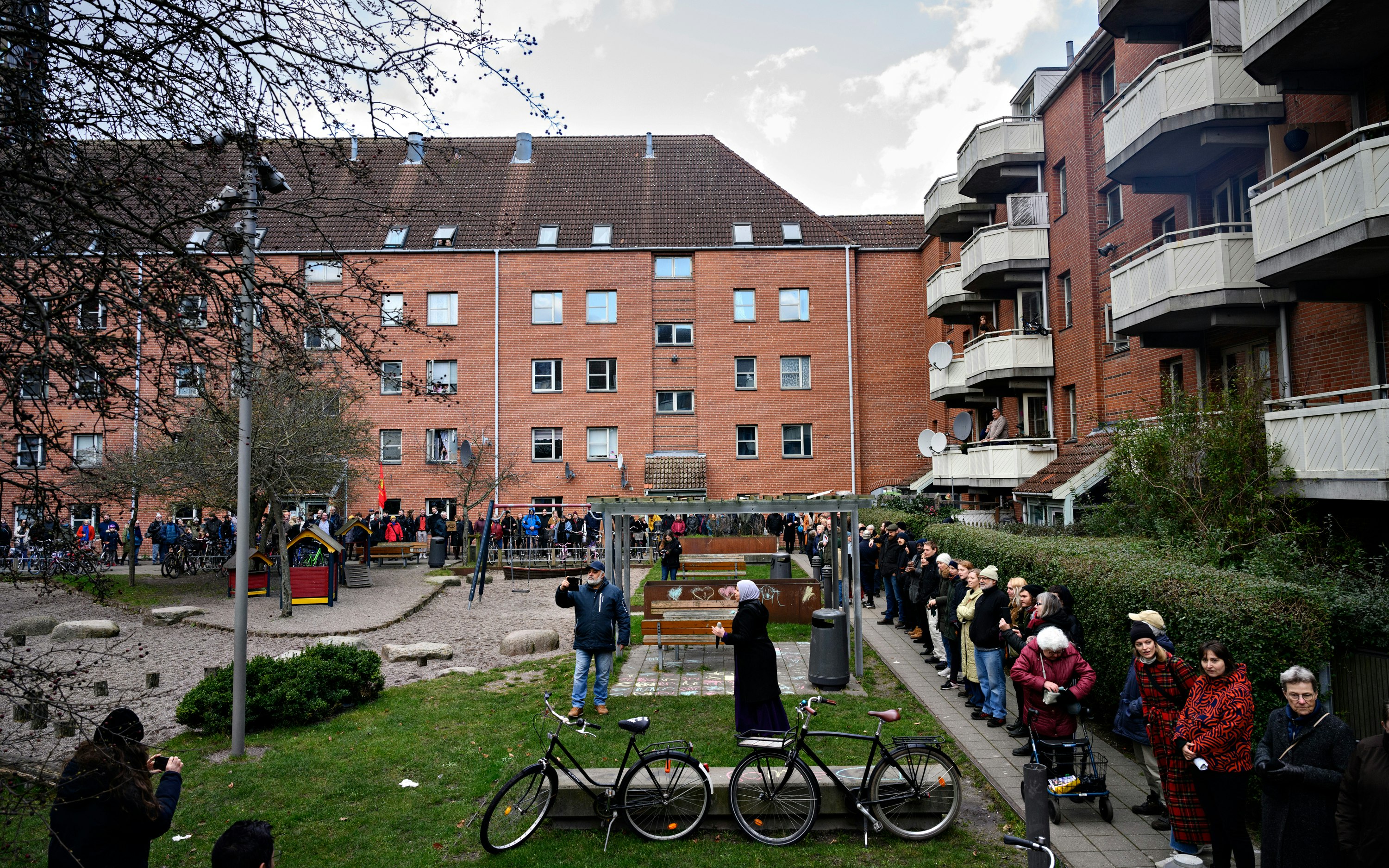Timishev v. Russia
Racial Profiling by the Police
Racial profiling by police and security forces has long been a problem in Russia, particularly in the republic of Chechnya in the North Caucasus. The outbreak of the war in 1994 led to an increase in profiling of Chechens and other ethnic Caucasians, particularly Ingushes. In the Caucasus region, ethnic profiling frequently occurred through disproportionate stop and detention of individuals of non-Slavic origin in roadblocks on the national highways. Without a clear legal basis or a legitimate purpose, these restrictions formed a pattern of arbitrary and discriminatory vehicle stops on the basis of the occupants’ perceived ethnicity. The north Caucus remains to be a volatile region, in which the practice of ethnic profiling at borders continues to persist.
Facts
Ilyas Yakubovich Timishev is a lawyer of Chechen ethnicity who lived close to Nalchik—the capital of Kabardino Balkariya, the republic bordering Chechnya. Although Timishev and his family were forced to move because of the war in Chechnya, he still traveled frequently on the highway between Nalchik and Grozny, the Chechen capital. He was repeatedly stopped at checkpoints and, on one occasion, was forced to abandon his car and complete his journey by hitchhiking. This was not an isolated incident, but part of a pattern of ethnic profiling of Chechens, Ingushes and other Caucasians by Russian police.
The traffic checkpoint system in the North Caucasus emerged in 1991, in particular between the cities of Nalchik and Grozny, after General Dzhkokhar Dudayev was elected president of Chechnya and declared Chechnya’s independence from the Russian Federation. In 1994, the eruption of military conflict between Moscow and Grozny prompted the Russian government to increase the number of checkpoints and controls along the Nalchik-Grozny roads. IN 2008, there were 21 checkpoints along these roads.
Timishev’s frequent trips on the highway between Nalchik and Grozny often lead to humiliating circumstances, extreme inconvenience, and the risk of more serious harm. He states that a journey that used to take two hours now takes up to twice that long, based solely on his ethnicity.
In September 2008, the Open Society Justice Initiative undertook scientific testing on the two roads from Nalchik to Grozny in order to determine whether individuals of Chechen ethnicity were treated differently from individuals of other ethnicities. Employing a methodology often used to measure discriminatory profiling against a minority or ethnic group, researchers placed minority and non-minority subjects in an identical situation to isolate any difference in treatment. The testing was carried out using three different vehicles, two with Chechen license plates with Chechen and Ingush passengers, and one with Kabardino-Balkarian plates with Russian passengers. The participants kept a log noting the details of their journey and described how they were treated after officers at the checkpoints saw their vehicle registration and their identity documents.
The results demonstrated a pronounced difference in treatment based on driver ethnicity. The trip between Nalchik and Grozny took longer for vehicles with Chechen plates. The two Chechen vehicles were both stopped and searched by police more often than the Russian vehicle. All Chechen subjects indicated that police made derogatory racial remarks during the encounters. Police also checked documents on every occasion for Chechen/Ingush passengers, but checked on only three occasions out of the five stops of the Kabardian vehicle. Strikingly, the average stop took 13 minutes for the Kabardian vehicle, but 32 minutes and 41 minutes respectively for the two Chechen cars.
It is clear from the data that highway police operating between Nalchik and Grozny practice ethnic profiling, disproportionately stop vehicles with Chechen plates and detain stopped drivers for protracted investigation, despite a clear lack of any legitimate police or security purpose.
Open Society Justice Initiative Involvement
The Justice Initiative acts as counsel for Timishev before the European Court of Human Rights.
Arguments
The application argues that the checkpoint system on the highway between Grozny and Nalchik, and the ethnic profiling practiced by the police and security forces at these checkpoints violates the European Convention.
Unlawful restriction of movement. The restrictions imposed by the checkpoint system are arbitrarily applied and serve no legitimate purpose, in violation of the right to freedom of movement (Article 2, Protocol 4).
Discrimination. Ethnic profiling of Chechens and Ingushes at highway checkpoints between Nalchik and Grozny violates the prohibition of discrimination (Article 14) in conjunction with freedom of movement.
The case was declared inadmissible by the European Court of Human Rights in 2013. Unfortunately, no reasons are provided for such decisions.
Ilyas Timishev brought another case to the European Court of Human Rights, in which the Court ruled that a vehicle stop at a checkpoint in the Kabardino-Balkaria region, and the refusal of entry, had violated his freedom of movement. This restriction, which was based on an oral instruction by the Ministry of the Interior to not admit anyone of Chechen ethnic origin, had not been in accordance with the law. The Court considered that the restriction on the applicant’s freedom of movement had been imposed solely on the ground of his ethnic origin. Given that the applicant had established a difference in treatment, the burden fell on the state to justify such difference. The state did not provide any valid justification, and the difference in treatment had constituted racial discrimination in violation of Article 14 read in conjunction with Article 2 of Protocol No. 4 of the Convention.
It is worth noting that by finding the restriction had not been in accordance with the law, the Court avoided ruling on the question “whether the political and social situation” at the given time and place necessitated checkpoints and identity checks, including whether the authorities’ reliance on them was proportionate to the aim pursued.
The Open Society Justice Initiative has challenged similar racial discriminatory police profiling in cases against France and Spain. It has also challenged ethnic discrimination against Roma in cases such as Nikolova, D.H. v. Czech Republic, and Bagdonavichus v. Russia.
Through a single judge decision the European Court of Human Rights declared the application inadmissible.
Full application submitted to the European Court of Human Rights.
Open Society Justice Initiative conducts scientific testing to measure ethnic profiling activity by Russian police along the Nalchik-Grozny highway.
Applicant files a cassational appeal against the July judgment with the Moscow City Court (dismissed in October 2007).
Applicant lodges complaint with the Moscow District Court against the Russian Ministry of Internal Affairs (dismissed in July 2007).
Chechnya declares independence, first checkpoints established on roads between Nalchik and Grozny.
Related Cases
Makhashev v. Russia
This case involves brothers who were beaten by Russian police and subjected to anti-Chechen insults. Discrimination by police against Chechens is common in Russia, but this was the first time it has been challenged in court.
Williams v. Spain
With Women’s Link Worldwide and SOS-Racismo Madrid, the Open Society Justice Initiative filed a complaint to the United Nations Human Rights Committee on behalf of Rosalind Williams regarding a case of racial profiling by a Spanish police officer.
Related Work
Q&A: Bringing a Case Before the International Court of Justice for the Rights of Afghan Women and Girls
This paper considers 21 questions around the feasibility of bringing a complaint at the International Court of Justice against Afghanistan's Taliban for egregious and prevalent violations of women’s and girls’ rights.

Restrictions on Muslim Women's Dress in the 27 EU Member States and the United Kingdom
This policy brief and accompanying fact sheet map EU and UK laws and pending legislation restricting religious dress—specifically the headscarf and face veil worn by Muslim women.

Evidence Suggests Evictions in a Danish Neighborhood were Racially Biased. Now the Case is Before the High Court.
This case may set an important precedent for standards for discrimination in Denmark.
